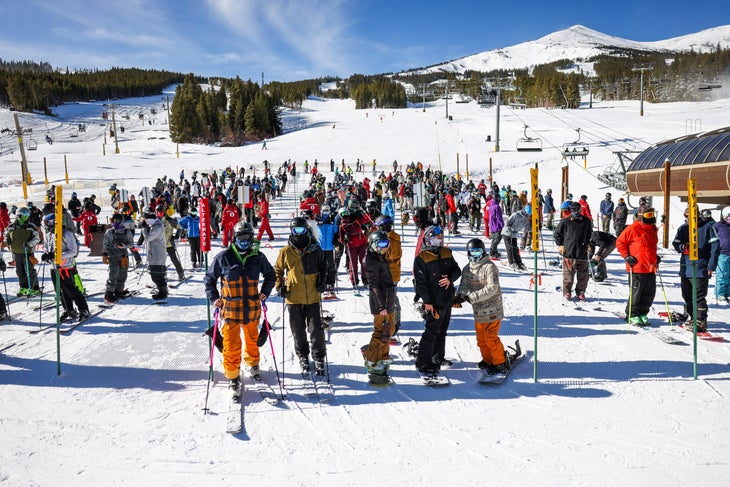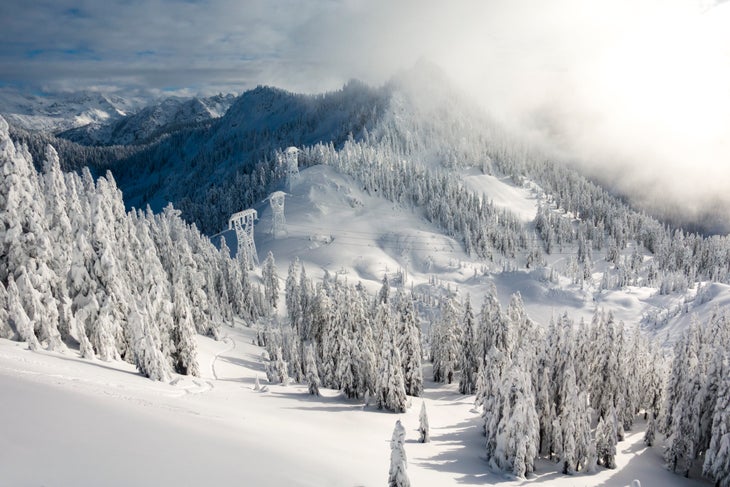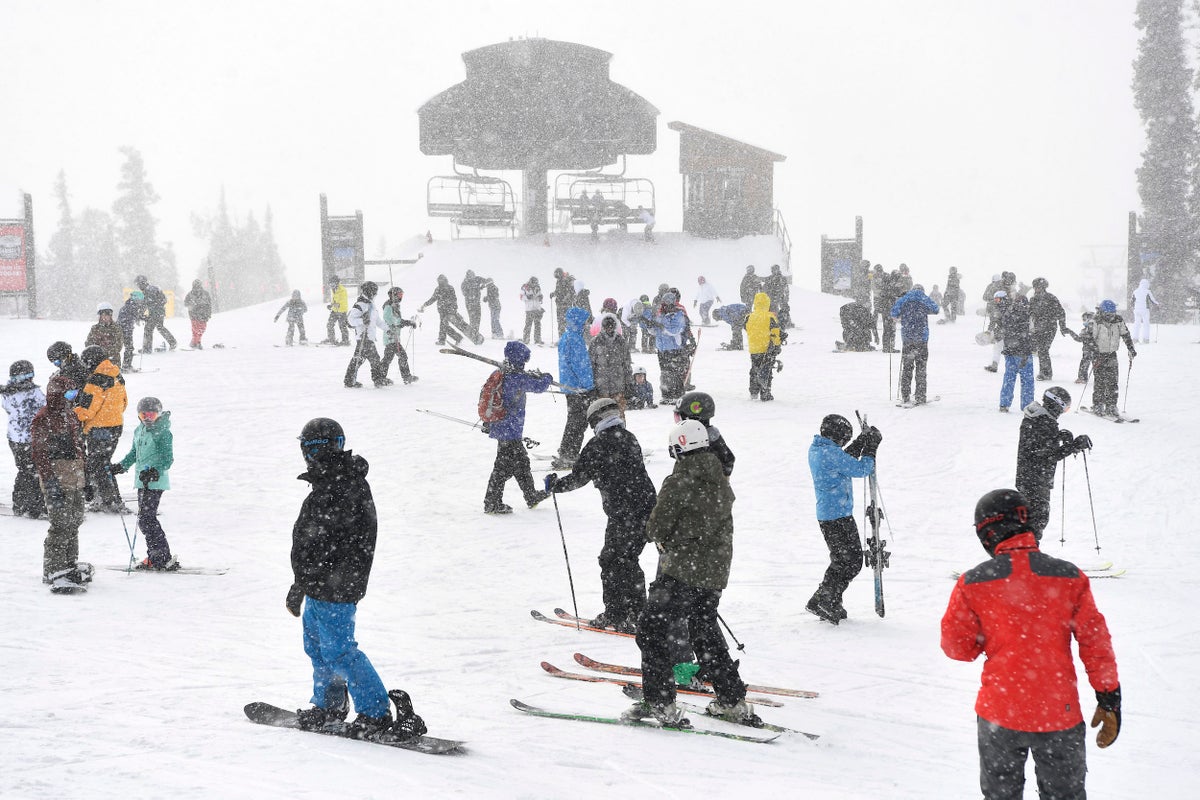Products You May Like
Get access to everything we publish when you
sign up for Outside+.
Despite what you might have personally experienced on the slopes over the Christmas holiday period, be it massive lift lines or business as usual, Vail Resorts provided some numbers last week to help put things in perspective.
Reporting on skier numbers through Jan. 2, 2022, the Colorado-based company says overall visits are down 1.7 percent from last year’s pandemic winter, and 18.3 percent from the 2019-’20 season—the last “normal” period we have to compare to.

Lift ticket revenue is up over 25 percent from last season—which is not surprising given the Epic Pass’ 20-percent price cut. Also not surprising: Ski school and dining revenue are up 59.1 and 64.7 percent respectively, considering the restrictions imposed on both of those offerings last season. Lodging metrics, however, tells a very different story. Numbers reported by Inntopia’s DestiMetrics counts December 2021 as one of the busiest in recent history. According to Inntopia, occupancy was up 37 percent compared to pre-pandemic December 2019, and revenue was up 40 percent from that same time period. The group surveys 290 property management companies at 18 Western resorts.
Related: Keeping Workers Living Locally is the Key to Survival For Our Ski Towns
Looked at together, the stats paint a confusing picture of what’s really going on at Vail’s 54 North American resorts, some of which are far more affected than others. Washington’s Stevens Pass, which as of Sunday of the Martin Luther King, Jr. holiday weekend had only 35 percent of its terrain open, or 27 of 77 trails, has seen historic crowding and hour-long lift lines due to staffing shortages.
Vail’s latest attempt to address the staffing issue came in a Jan. 14 announcement from Vail Resorts CEO Kirsten Lynch offering $2/hour bonuses to all Vail Resorts employees who stick with the company through the end of the season. The cost to the company is estimated to be $20 million.

“Many of you have had to carry an extra burden this season,” Lynch wrote in an employee email. “Staffing was always going to be tight given the global labor shortage, but the acceleration of Omicron, late snow, and many other factors created particularly challenging impacts for our operations teams. We were all hoping this season would be more ‘normal’, however, as we went through the busy holiday period, it became apparent that we are still navigating the impacts of this pandemic.”
The bonus will be paid out in May to eligible part- and full-time employees, and is in addition to a Holiday Bonus program that bumped wages for hours worked through Dec. 31, 2021
“The two programs together represent a significant additional investment this season in our team,” Lynch wrote. “It is unusual to take these actions in the middle of the season, but this is an unusual season.”
At Stevens Pass, it just might not be enough. The Change.Org petition started by Stevens Pass skier Jeremy Rubingh has nearly 41,000 signatures calling for immediate change or a refund of 60 percent of the cost of the Epic Pass.
Go Deeper: Did the Pandemic Finally End the Modern Day Ski Bum?
“As Stevens Pass skiers, snowboarders, and customers who purchased a Vail Resorts Epic Pass, we are disgusted with the mismanagement of the ski area, the failure to treat employees well, or pay them a livable wage, and the failure to deliver the product we all paid for and bought with hard-earned money during a pandemic,” Rubingh wrote in his petition that’s still going strong. “Lift lines are out of control to the point where the majority of a day of “skiing” is spent standing in line at one of the few lifts open.”
This past weekend, Rubingh added a new twist, calling for Epic Pass holders to turn off the auto-renew function on their passes so that Vail will feel it in their pocketbook come May, when they rake in the lion’s share of pass sales from skiers locking in the lowest rate.
“Vail Resorts will need to earn our business back with their actions over the rest of the season,” said Rubingh. “We are having a positive impact, but we need to keep pushing. The Vail Resorts business model must change.”
